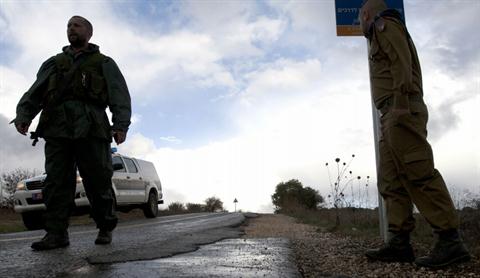
By Dr Brecht De Smet
There are many ways to interpret the 30 June protests and former president Mohamed Morsi’s exit. From a formal democratic perspective, the military intervention constituted a coup against a legitimate president. From the viewpoint of secularism, the fall of Morsi and the Muslim Brotherhood signals the end of Islamist encroachment. From a humanitarian angle, the armed forces pre-empted street violence or even civil war. However, in revolutionary times, it makes sense to judge the recent events from the standpoint of revolution and its antipode: counter-revolution.
In his Preface to the History of the Russian Revolution, revolutionary leader Leon Trotsky observed that: “The masses go into a revolution not with a prepared plan of social reconstruction, but with a sharp feeling that they cannot endure the old regime …The fundamental political process of the revolution thus consists in the gradual comprehension by a class of the problems arising from the social crisis – the active orientation of the masses by a method of successive approximations.” This comment goes to the heart of the process we witnessed since 2011. On 25 January the popular classes initially did not enter the streets to demand the fall of the system. This radical demand emerged from within the process itself, when people began to recognise their power through the salient display of their mass mobilisation in the streets. Throughout the 18 days protesters hoped that President Hosni Mubarak would resign in the face of mass demonstrations, like Ben Ali did in Tunisia. When he stubbornly refused to step down, the tactics and demands of the uprising radicalised even more. Demonstrators began to march towards key sites of state power, such as the presidential palace, the People’s Council, the Maspero Radio and Television Building, military barracks, and so on; and workers started to strike and occupy factories.
At that point the Supreme Council of the Armed Forces (SCAF) intervened, cutting short the spontaneous development of the popular committees and the “Republic of Tahrir” into instruments of people’s power. Most protesters, however, welcomed the military intervention, as they could not (yet) imagine how to use their recently discovered popular power to end the regime and transform the entire system. They left the “democratic transition” into the hands of the only national institution they kept on trusting, while remaining confident in their ability to pressure any governing body through the power of street mobilisations. Gradually, the people realised that its “approximation” of the revolutionary demands of bread, freedom and social justice via SCAF rule was unsatisfactory. A continued economic crisis, the violent repression of protests and strikes, the torture and intimidation of activists, and so on, were antithetical to the project of popular revolution.
The critical vote for Morsi in the second round of the presidential elections represented a new “approximation” of the people’s project. Again, in general, the popular classes were prepared to give their first democratically elected president a chance to transform the authoritarian state institutions and to reform the economic system in a just and equitable way. However, Morsi’s inability to deal with the power of the military, the security forces and the old elites, his reluctance to include oppositional voices in the newly drafted constitution, and his failure to pursue both economic growth and social justice, alienated broad layers of the people from his policies.
The grassroots Tamarod campaign expressed the popular desire to give a new direction to the revolutionary process. In a magnificent display of popular agency, the streets filled once more with millions of protesters, demanding a revival of the revolution. Just as in 2011, popular committees from below had organised and stimulated the mass mobilisation, constituting the seeds of genuine people’s power. But just as in 2011, the development of this popular power was rendered obsolete by military intervention. Regardless of the intentions of the generals, which is a different discussion altogether, the “benign coup” had the objective effect of demobilising the masses. Once again the people entrusted the institution of the armed forces with their revolutionary aspirations and demands.
However, the current “approximation” in the long process of revolution is much more conditional. Two years of revolutionary ebb and tide, victories and losses, represented a hard school of politics for the Egyptian people. Now, protesters are reluctant to return to the SCAF era and Tamarod only accepted the military intercession on its own conditions. Nevertheless, there is a real danger that the current approximation of the revolutionary project will be hijacked by counter-revolutionary forces – this time in a misdirecting secular and formal democratic shape. Since 2011, elections have served to buttress the position of the SCAF and the Brotherhood, rather than strengthening the democratic process. The old institutions of the Mubarak dictatorship remain largely untouched by the revolutionary wave. In addition, the economic woes of the Egyptian populace might be aggravated if the impeding International Monetary Fund loan is paired to increased austerity. In order to transform both the political and economic structure, top-down democratic reform has to be secured, controlled and safeguarded by direct popular power “from below,” especially by the development and extension of the Tamarod committees, the independent trade unions and opposition parties. Otherwise the current path of “approximation” will turn into a new round of counter-revolutionary politics.
Dr Brecht De Smet is an assistant professor at Ghent University, Belgium. Since 2008 he is conducting research in Egypt on the contemporary workers’ movement and its relation with political forces. He has published in international journals and is considered an opinion maker on the Egyptian revolution in the Belgian media. Follow his writings at http://ugent.academia.edu/BrechtDeSmet




